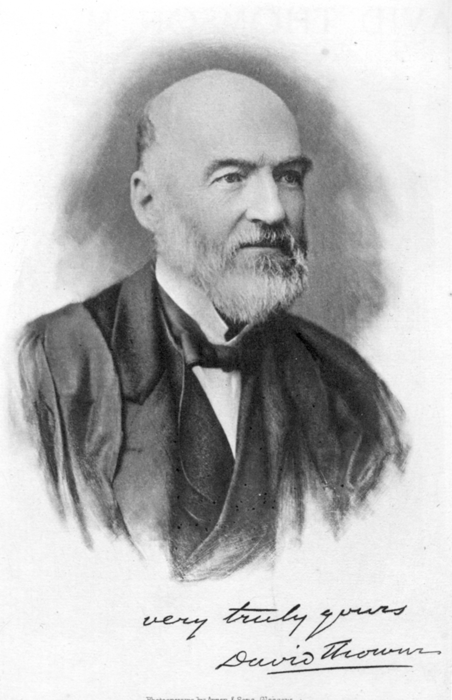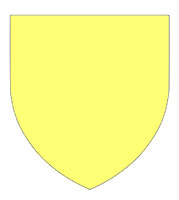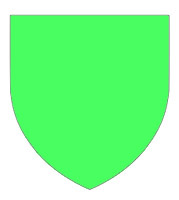| Professors of Natural Philosophy at the Universities of Aberdeen |
David Thomson MA 17 Nov 1817 - 31st Jan 1880David Thomson became something of a legend during his time at King's College. He was born in Leghorn, Italy. Some references say he was a cousin of Michael Faraday but I have no confirmation of that. At age 15 he attended the University of Glasgow from where he graduated before proceeding to the University of Cambridge for his BA, received in 1839. He returned to Glasgow in 1840 as assistant to the Professor of Natural Philosophy (William Meikleham) and in the event stood in for him for a few years due to Meikleham's illness. In 1845, as well as getting his MA from Cambridge he was appointed Professor of Natural Philosophy at King's College. He soon made his mark, for he found the discipline lax, students prone to cheating and paying less attention than he felt they should. Thomson had a commanding physical presence, accentuated by his 6 ft 6 inches (1.98 m) height. He quickly acquired a reputation for suffering no nonsense. Those who felt they could find themselves on the wrong side of his tongue or be fined for misbehaviour called him 'the fiend'. Generally he was known as 'Davie''. David Thomson's lasting legacy was the result of his administrative efforts. He soon made his mark in Senate, becoming its secretary, and fairly quickly rose to become Sub-Principal in 1854. King's College and Marischal College found themselves thoroughly investigated by a Royal Commission in 1857 - 1859. Its intent was to amalgamate the two Universities into one. Amongst other changes, this would remove the competition of the two Colleges for students. Thomson argued strongly and brought his considerable political skills to advance the case for 'fusion', whereby the Arts teaching of both Universities in any subject would be merged into a single department, based at King's College, with a single Professor earning a larger salary from a larger class. Thomson clearly had a vested interest! He didn't reflect the views of many King's students who saw their University as the more venerable, the more famous, and the richer of the two that would be demeaned by connection with such a juvenile, modern and poor establishment as Marischal College. The fusion argument won the day. The Professor whom the Royal Commission effectively dismissed was James Clerk Maxwell. Apart from the misfortune of Aberdeen losing Maxwell, in retrospect it was a decision that went against a case that the more far-sighted were arguing in the wider context of Universities, the case for larger departments to have more than one professor. Aberdeen had a Professor who was excellent at teaching (Thomson) and one who was outstanding at research and an inspiration to bright pupils (Maxwell). Between them they could have created an impressively attractive department in the newly minted University of Aberdeen, but it didn't happen. Since Thomson retained his Chair, there is more on him after introducing the University of Aberdeen. |

An engraving from a portrait taken circa 1860 by G W Wilson, the frontispiece to Thomson's biography by William L Low "David Thomson M.A. Professor of Natural Philosophy in the University of Aberdeen; a Sketch of his Character and Career", William Leslie Low [D. Wyllie & Son, Aberdeen 1894]' |
|
Page by John S. Reid Dec. 2017 |


